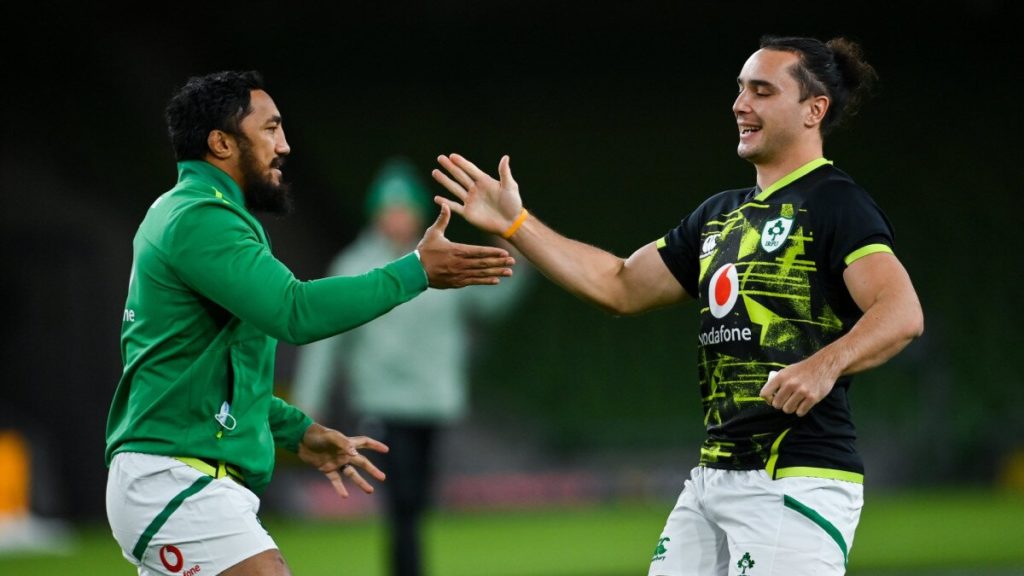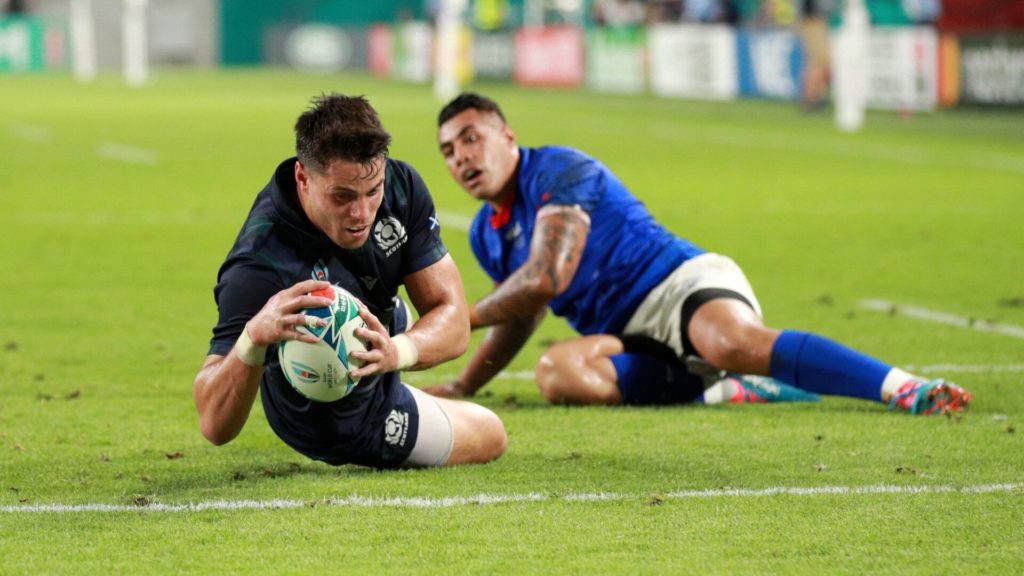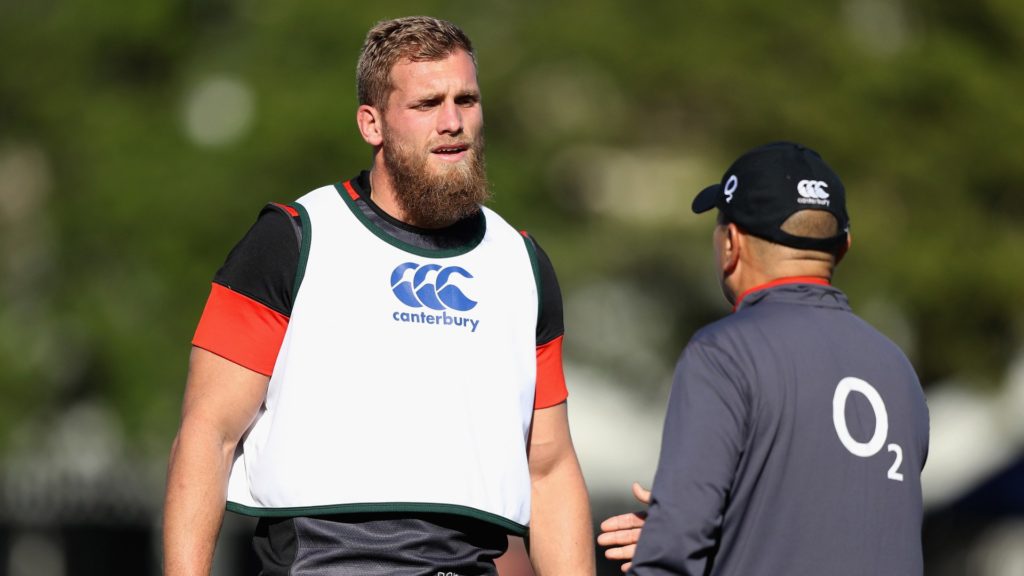It seems likely, given his form to date, that Ireland’s James Lowe is going to make an impact in the Six Nations next year and spark the inevitable headline that he’s a player that slipped through New Zealand’s fingers.
It will not be true but those writing about the game in the North want to believe it is. For the sake of the Six Nations’ credibility it’s important for everyone in Ireland to convince themselves that Lowe had the All Blacks begging him to stay in New Zealand but the lure of a green jersey and life in the Emerald Isle tugged too hard at his heart strings and off he went.
But Lowe, a fine young man and a good Super Rugby player, slogged his heart out for the Chiefs between 2014 and 2017 and never quite convinced the All Blacks’ selectors that he was a player for them.
He was on edge of their radar, a player they got to after they had locked in Ben Smith, Julian Savea, Cory Jane, Israel Dagg, Charles Piutau, Nehe Milner-Skudder and Waisake Naholo.

Maybe, and it is a big maybe, if injury hadn’t struck in 2015, Lowe would have won a cap before the World Cup, but he is categorically not the player who got away.
Just as Brad Shields wasn’t when he was picked by England in 2018. Like Lowe, the All Blacks couldn’t commit to selecting Shields because they didn’t think he was quite explosive enough or dynamic for the game they wanted to play.
It will not be true but those writing about the game in the North want to believe it is. For the sake of the Six Nations’ credibility it’s important for everyone in Ireland to convince themselves that Lowe had the All Blacks begging him to stay in New Zealand but the lure of a green jersey and life in the Emerald Isle tugged too hard at his heart strings and off he went.
Between 2012 and 2018 New Zealand burned through a lot of blindside flankers – Liam Messam Adam Thomson, Victor Vito, Steve Luatua Jerome Kaino, Liam Squire, Vaea Fifita and Shannon Frizell.
That’s how far down the pecking order Shields was – he saw all those other players win test caps, while the closest he got was a potential call-up as cover for the non-test against a French XV in 2017 in Lyon – and that was after Luke Whitelock and Akira Ioane had been drafted ahead of him.
New Zealand Rugby battled to stop Shields from playing for England in June 2018 not because they wanted him to be an All Black, but because they wanted to set a precedent around players still under contract to Super Rugby clubs.
History can be re-written any way the Northern Hemisphere likes but the truth, as it is understood in New Zealand, is that neither of these two players were on track to be regular All Blacks.
They left with a pat on the back and a thanks very much but no lingering pang of regret surfaced in their homeland after they had gone.
Just as Sean Maitland wasn’t a player the All Blacks spent years kicking themselves for not picking after he turned up in Scotland. He was yet another good Super Rugby player who wasn’t deemed to have all that he would need to crack the All Blacks.

And the list could go on, seemingly, forever. Riki Flutey, Brendan Laney, Willi Heinz, Jamison Gibson-Park, Hadleigh Parkes and John Hardie.
Whether the Northern Hemisphere genuinely believes it is stealing top talent from New Zealand or has a waste-not-want not attitude hardly matters – the point is that the likes of Ireland, Scotland, Wales and even England, are selling their home-grown talent short when they go all weak-kneed around their Kiwi imports and accelerate them into their international set-ups.
Not only, that, but they sell the Six Nations short and while the Southern Hemisphere is wildly envious of the history, the tradition, the intensity of the atmosphere and the sense of occasion, they are barely even curious about the quality of the rugby because how can they take the whole thing seriously when they see so many of their unwanted heralded as the new superstars of the international game?
Rugby followers around the world will find a way to watch the All Blacks play the Springboks but not England play Ireland. The Six Nations is compelling, but only to those with an emotional stake in the outcome.
It’s also impossible to imagine how the next-in-line-generation of Irish players feel when they hear Lowe, ahead of making his test debut, talking quite openly about his boyhood dream of one day playing for the All Blacks and how he’s still struggling to take in the fact that’s not going to happen.
An international jersey is something to covet not accept as a second prize – agree to wear on the basis that if you can’t be with the one you love, try to make the best of being the one you are with.
The benchmark to be rushed into an international side, trampling all over the hopes and dreams of local players, surely has to be set higher than having been a good Super Rugby player. So again, the actual truth is more reason for the North to create their alternative truth.
It’s sad old business, though. The North wanting to sell themselves to their own fans as the ultimate bargain hunters, seemingly scoring these endless talent identification victories while poor old New Zealand is left with odds and sods for the All Blacks. Just who benefits from this egregious truth-spinning is hard to know. Probably no one.
When England, in particular, produce such great, home-grown talent it frankly doesn’t make sense that they have such an appetite for New Zealand’s discards. It seemed crazy, and probably was, that Eddie Jones moved heaven and earth to fast-track Shields into his set-up, given the back row riches that were right under his nose all along.

Just as it appears odd that Ireland have pounced on Lowe when they have the likes of Jordan Lamour and Jacob Stockdale in their midst.
As to why this now tired scenario of players never quite making it in New Zealand only to be stars in the Six Nations continues to happen, appears to be down to one thing: which is that there is an inferiority complex running through the European game.
Deep down, the English coaching fraternity, just like the Irish, Scots and Welsh have more faith in New Zealand’s development programme than they do their own. Give them two players of seemingly equal ability and they will pick the Kiwi. Every time.
The evidence for that is beyond dispute given the volume of New Zealand journeymen who have won international caps elsewhere.
It’s common practice these days for Northern Hemisphere coaches and players to claim the All Blacks aura has gone and yet the instant someone turns up on their respective shores claiming they went to school with Dan Carter, they are suddenly a player of extreme interest.
Deep down, the English coaching fraternity, just like the Irish, Scots and Welsh have more faith in New Zealand’s development programme than they do their own. Give them two players of seemingly equal ability and they will pick the Kiwi. Every time.
The inconvenient truth for emerging players in England, Ireland, Scotland and Wales is that they may end up proving they are better than any of their fellow, domestically-developed peers, but that still may not win them test selection.
And clearly, given the volume of South Africans now picking up test caps in Scotland and Ireland in particular, the current world champions are now as revered as much as the All Blacks and equally likely to see their discards wash up in other nation’s international set-ups.
All of which means that in a year when endlessly bad and disruptive things happened, the worst of all was the decision by World Rugby to delay implementing the proposed change to the current eligibility law.
At the end of this year the new law was supposed to kick-in – increasing from three years to five, the length of time it will take a player to qualify on residency grounds.
Who wouldn’t bet that gets pushed it by another year and then another so as the Northern Hemisphere doesn’t have to look deep into itself and confront the inconvenient truth that they rather like being able to shop for New Zealand’s discards.


Comments
Join free and tell us what you really think!
Sign up for free